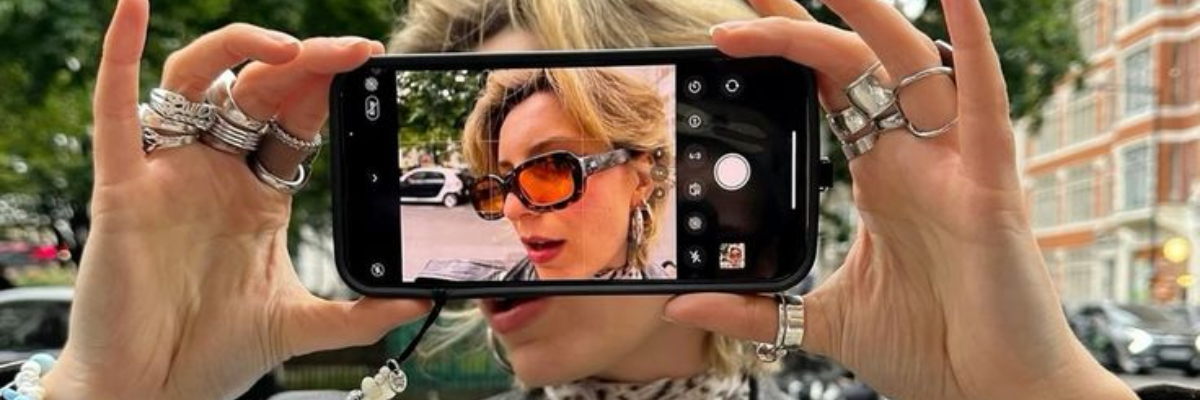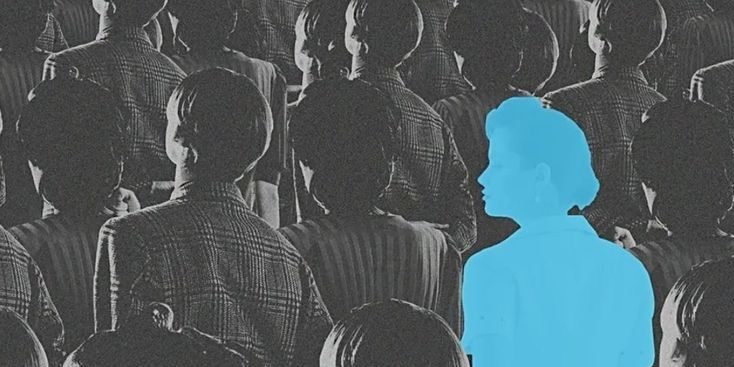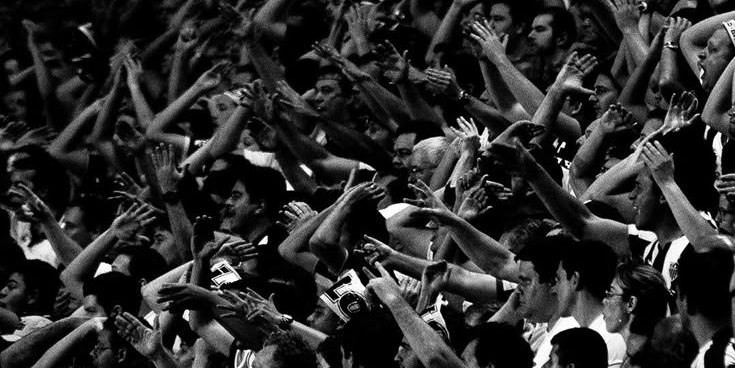Image credit: Instagram / @momentsabloom
With Cannes Lions’ introduction of a dedicated Creator Economy track last year and five new award subcategories for 2025, the industry is signalling the importance of creator-led marketing.
As we look toward 2026, brands that want to stay competitive must understand the shifting environment in which creators, communities and authentic partnerships will drive business growth.
Here’s what the industry’s top minds revealed at Cannes Lions 2025 about creator marketing trends for 2026 and beyond.
What is the creator economy?
The creator economy refers to a growing digital ecosystem where content creators, audiences, platforms, brands and agencies interact and exchange value.
At its core are creators, including influencers, YouTubers, podcasters, writers and artists, who monetise their content through brand partnerships, affiliate marketing, subscriptions, merchandise sales and community donations.
The economy thrives on platforms like YouTube, TikTok, Instagram, Substack, and Patreon, where creators turn their skills and influence into sustainable income streams.
How is the creator economy evolving?
In 2023, Goldman Sachs analysts estimated the creator economy was a $250bn industry and could climb to $480bn by 2027.
With this knowledge, Cannes Lions launched an official creator economy track, LIONS Creators, in 2024. As of 2025, the festival continues to scale its focus on the industry with five new award subcategories for 2025 that highlight the individual value creators contribute to campaigns:
- Creator Collaboration
- Creator-Led Content Strategy
- Community Building
- Cross-Platform Storytelling
- Excellence in Craft
The conversations at Cannes are shifting from asking “why should we work with creators?” to “how do we scale creator partnerships effectively?”. With this, the focus has moved to building sustainable creator ecosystems that deliver measurable ROI.
What does this mean for creator marketing in 2026?
For brands, ad-hoc influencer partnerships aren’t enough. Instead, businesses will need community-driven creator marketing strategies with clear KPIs, budget allocation and cross-functional team integration in 2026 and beyond.
The rise of the creator CEO
One of the most significant trends emerging from Cannes Lions 2025 is the push for business leaders to become creators themselves.
The concept of the ‘Creator CEO’ derives from the need for trust-building, especially in B2B environments. And creator CEOs are on the rise – the Financial Times reported here a 35% increase in C-suite professionals in the US on LinkedIn in the past five years and a 30% rise in the UK.
Industry leaders emphasised that personal branding for executives is now essential. In an era where consumers and clients want to connect with the humans behind brands, leaders who own their personal narrative build stronger, more authentic relationships with their audiences.
What does this mean for creator marketing in 2026?
Brands will invest in personal branding programs for their leadership teams. Expect to see more C-suite executives launching personal content strategies, from LinkedIn thought leadership to industry podcasts.
Micro-influencers and niche authority over scale
Cannes Lions 2025 revealed a definitive shift toward micro-influencers and niche authenticity, as major brands shared data showing that highly specialised, authentic voices consistently outperform broader but superficial reach.
This could be in part due to the rise of TikTok, as its algorithm is not based on follower count, but rather engagement. Anyone can go viral with the right content.
The key insight from multiple sessions was that engaged communities deliver better results than massive follower counts. The most successful creator partnerships happen when brands find creators who organically align with their values and audience.
As Girlbosstown creative director Robyn Delmonte said, “If you have to search for your niche, it’s not your niche.”
What does this mean for creator marketing in 2026?
Brands will prioritise depth over breadth, working with smaller creators who have genuine expertise and engaged communities. Budget allocation will shift from mega-influencer campaigns to sustained partnerships with micro-influencers.
The authenticity revolution
The industry is reacting against ‘fakeness’ and AI automation. Speakers highlighted a movement toward ‘unshittification’ – a return to simplicity, humanity and meaningful connection as AI tools become more prevalent in content creation.
Audiences are increasingly valuing authentic, human-centred storytelling and face-to-face interactions, and with this, experiential marketing activations like the Belissima Salon Tours stand out as premium experiences that command attention and trust.
The latest data on influencer marketing supports this narrative as 35% of consumers say they actively distrust AI-generated influencer content.
With that said, speakers recognised the power and permanence of AI. The conversation is now around how to best utilise it without losing the value of human creativity.
Creative entrepreneur Sun Yi summed it up as: “AI can’t replace artists, but it can power commercial art. That means learning to use it to sell yourself better, tell your story more clearly, or simply work faster.”
What does this mean for creator marketing in 2026?
Brands will need to balance AI efficiency with human authenticity. The most successful creator content will emphasise unpolished reality over highly produced, AI-enhanced content.
Creator equity and fair payment practices
Cannes Lions 2025 addressed systemic issues in creator marketing. SevenSix Agency’s 2025 Influencer Pricing Report revealed a 21.5% racial pay gap between black and white influencers in the UK, and speaker Charlotte Stavrou called out exploitative payment terms, with many creators waiting 30-120 days for payment.
The push for transparency extends from payment timing to pricing frameworks. Brands are being urged to share clear compensation structures and ensure equitable treatment across all creator partnerships.
What does this mean for creator marketing in 2026?
Brands must lead with transparent, equitable compensation on an ethical basis, but also to attract top creator talent and build stronger long-term partnerships.
The community strategy shift
Cannes Lions 2025 placed significant emphasis on owned community assets over follower metrics. Speakers consistently highlighted the value of email lists, podcasts and newsletters, with the memorable quote from Sun Yi: “One email is worth 100 followers”.
This shift represents a fundamental change in how brands and creators think about audience building. Rather than relying solely on platform-dependent metrics, successful creators and brands are investing in owned channels that provide direct access to their communities.
What does this mean for creator marketing in 2026?
Brands will allocate more budget toward helping creators build owned audience channels. Expect to see more creator-led podcasts, email newsletters and community platforms as part of integrated marketing strategies.
The rise and rise of experiential marketing
Beyond traditional content creation, industry leaders at Cannes Lions 2025 emphasised the growing importance of creator experiences. This trend encompasses events, workshops, product collaborations and immersive brand experiences.
The most successful creator partnerships in 2026 will create memorable experiences that extend beyond digital content, building deeper connections between creators, brands and communities.
What does this mean for creator marketing in 2026?
Brands will invest in experiential creator marketing, from exclusive events to product co-creation opportunities. The focus will shift from individual pieces of content to comprehensive creator experiences that drive long-term engagement.
Top tips for brands in creator marketing in 2026
The insights from Cannes Lions 2025 indicate several key strategic shifts brands need to make:
Investment priorities:
- Dedicated creator marketing budgets with clear ROI tracking
- Long-term partnerships over one-off campaigns
- Owned community building initiatives
- Personal branding programs for leadership teams
Operational changes:
- Standardised, equitable creator compensation frameworks
- Faster payment processes and transparent pricing
- Cross-functional creator marketing teams
- Measurement systems focused on engagement over reach
Content strategy evolution:
- Authentic, human-centred storytelling over AI-generated content
- Micro-influencer partnerships with niche expertise
- Experience-driven campaigns that extend beyond digital
- Community-building initiatives that create lasting value
Looking for an influencer marketing agency built for today’s world?
Brandnation’s influencer marketing model, Sphere, is built on a relationship-driven, triadic system that harnesses the power of the creator economy. Through our tiered, curated creator network, partnerships with leading talent agencies and advanced technology, we create spheres of influence that deliver measurable brand impact and ROI across both digital and experiential marketing.

About the author
Natalie Clement
With international experience as a digital marketer, writer, and editor, Natalie has worked across sectors including lifestyle, technology, and tourism.





